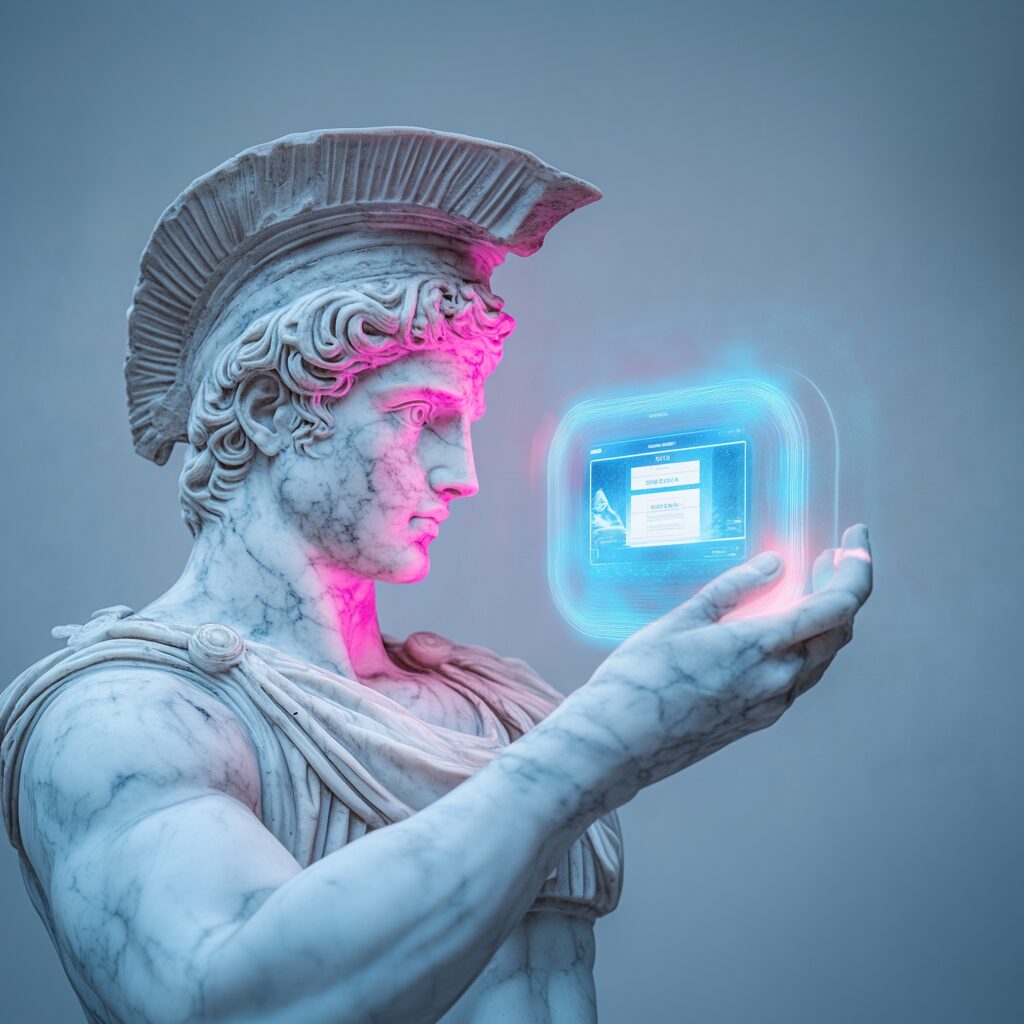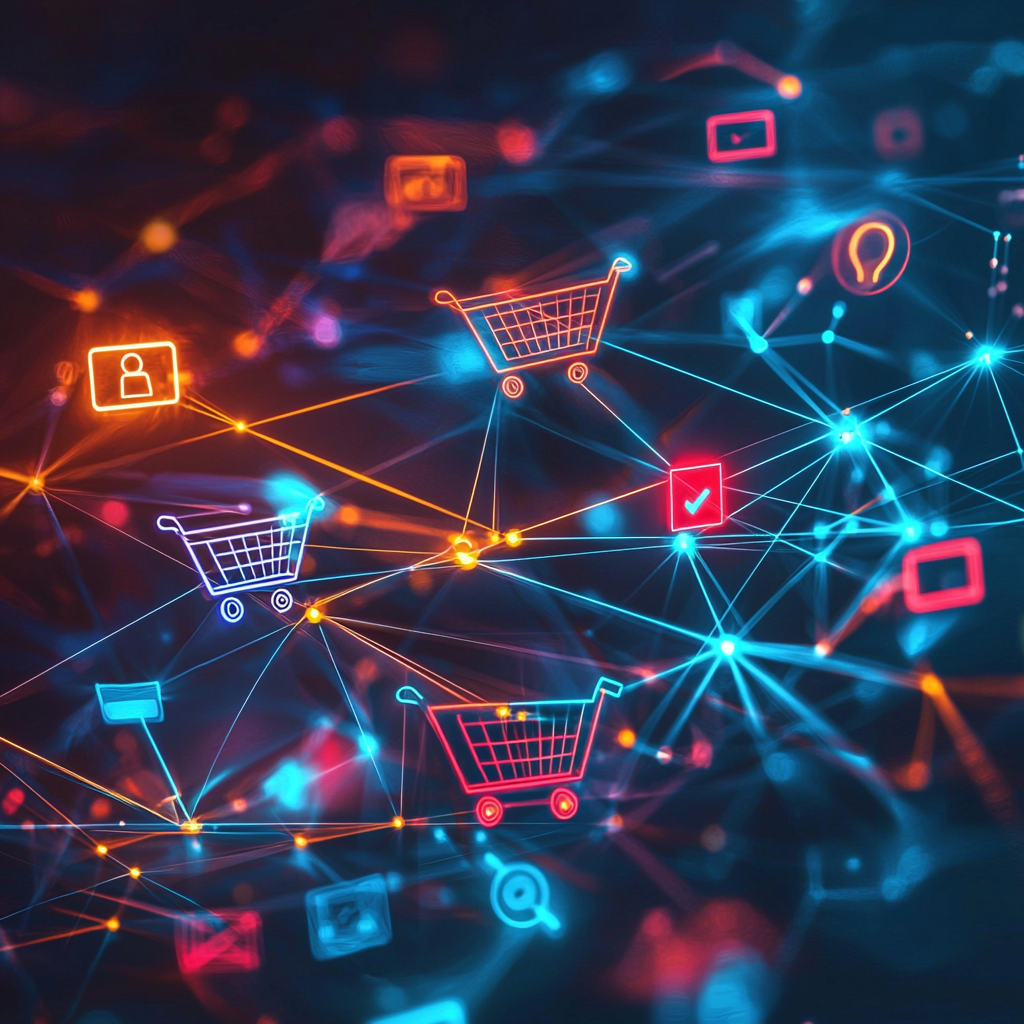Date of publication:
19 Dec. 24How artificial intelligence is used in healthcare
Imagine visiting a doctor who already knows everything: from your vitamin D levels to whether you prefer coffee with milk or without. No, it’s not magic or guesswork — it’s artificial intelligence working faster and more accurately than a conventional physician. Can you picture it? Let’s explore how AI is already saving lives, speeding up diagnostics, and changing the game in healthcare. While this technology is already applied in education, what about other fields?

Medicine has always been about people. But what do you do when there’s less and less time for patients, and the amount of information grows exponentially? This is where AI steps in. It doesn’t just analyze data — it understands you better than you know yourself. Curious to learn how these technologies are already unlocking new possibilities in healthcare? Keep reading — you’ll be amazed.
Artificial intelligence in healthcare: how it’s changing the game
Artificial intelligence (AI) is making confident strides into healthcare, turning futuristic ideas into reality. Imagine walking into a doctor’s office, and they already have a treatment plan based on thousands of similar cases. This isn’t magic — it’s the new standard of medicine.
Why is AI a game-changer in medicine?
- Speed: AI processes data in seconds, dramatically reducing diagnostic time.
- Accuracy: error rates drop significantly thanks to big data analysis.
- Accessibility: algorithms are easy to use, even for small clinics.
- Personalization: forget “one-size-fits-all” — this is treatment tailored just for you.
How does it work in practice
Here’s an example: a patient undergoes an MRI. AI doesn’t just “look” at the scan; it analyzes every pixel, comparing it to millions of others. If there’s even a slight hint of an anomaly, the system provides recommendations for further action. All this happens in minutes, compared to hours of manual analysis.
Advantages of implementing AI in clinics:
- Increased patient trust in the facility.
- Reduced rate of misdiagnoses.
- Competitive edge in attracting clients.
- Automation of routine tasks, allowing doctors to focus on complex cases.
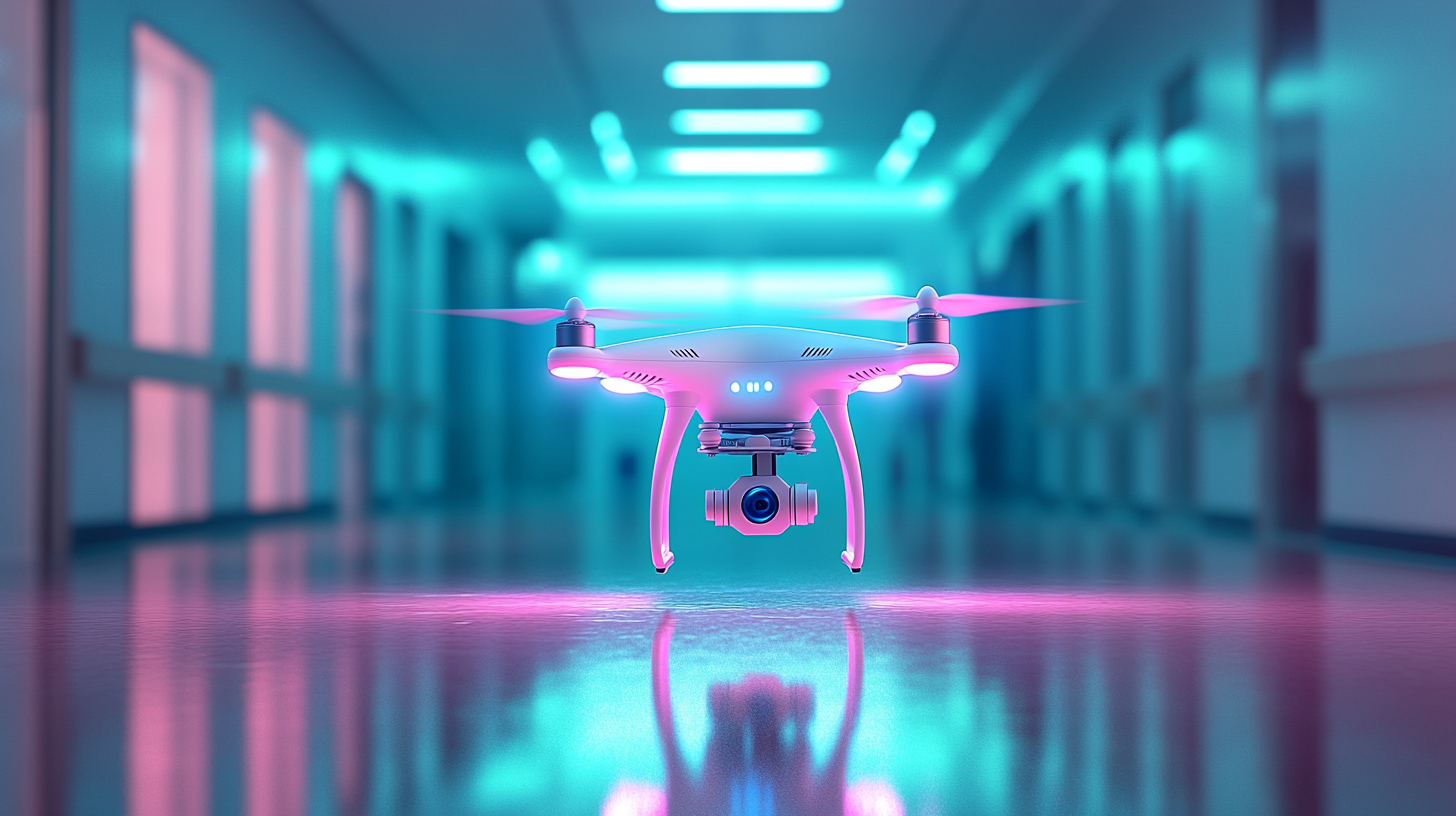
Personalized treatment: when medical care becomes unique
How often have you heard: “This medication works in 80% of cases”? But what if you’re part of the 20% for whom it doesn’t? Artificial intelligence is flipping this paradigm, creating treatments tailored specifically to you. In a world where everyone is unique, it’s time to make medicine personal.
What AI does for you:
- Deep data analysis: your medical history, genetics, and even lifestyle.
- Effective recommendations: the system considers every detail — from diet to allergies.
- Safe decisions: eliminating drugs or methods that could be harmful.
How personalized treatment works
Here’s how it happens:
- Data collection: AI analyzes your medical history, genetic code, and even habits and environmental factors in your region.
- Comparison: algorithms match your data with millions of other cases in global medical databases.
- Recommendation: AI suggests a personalized treatment or prevention plan designed for maximum effectiveness.
Benefits for patients and clinics:
- Treatment becomes fast and accurate.
- Patients trust clinics that leverage advanced technology.
- Medical businesses gain a competitive edge by offering unique services.
A real-life example
One of the most notable cases is AI’s use in oncology. IBM Watson Health helps doctors determine the best cancer treatment plan by factoring in a patient’s genetics. As a result, diagnostic accuracy improves, and processing time is reduced by 30-50%.
A thought-provoking story: a patient in the US underwent standard treatment that didn’t work. Only after analyzing the data with AI was it determined that his body responded better to a rare combination of drugs. The outcome? Complete recovery. This shows how technology can provide life-saving solutions when all else seems lost.
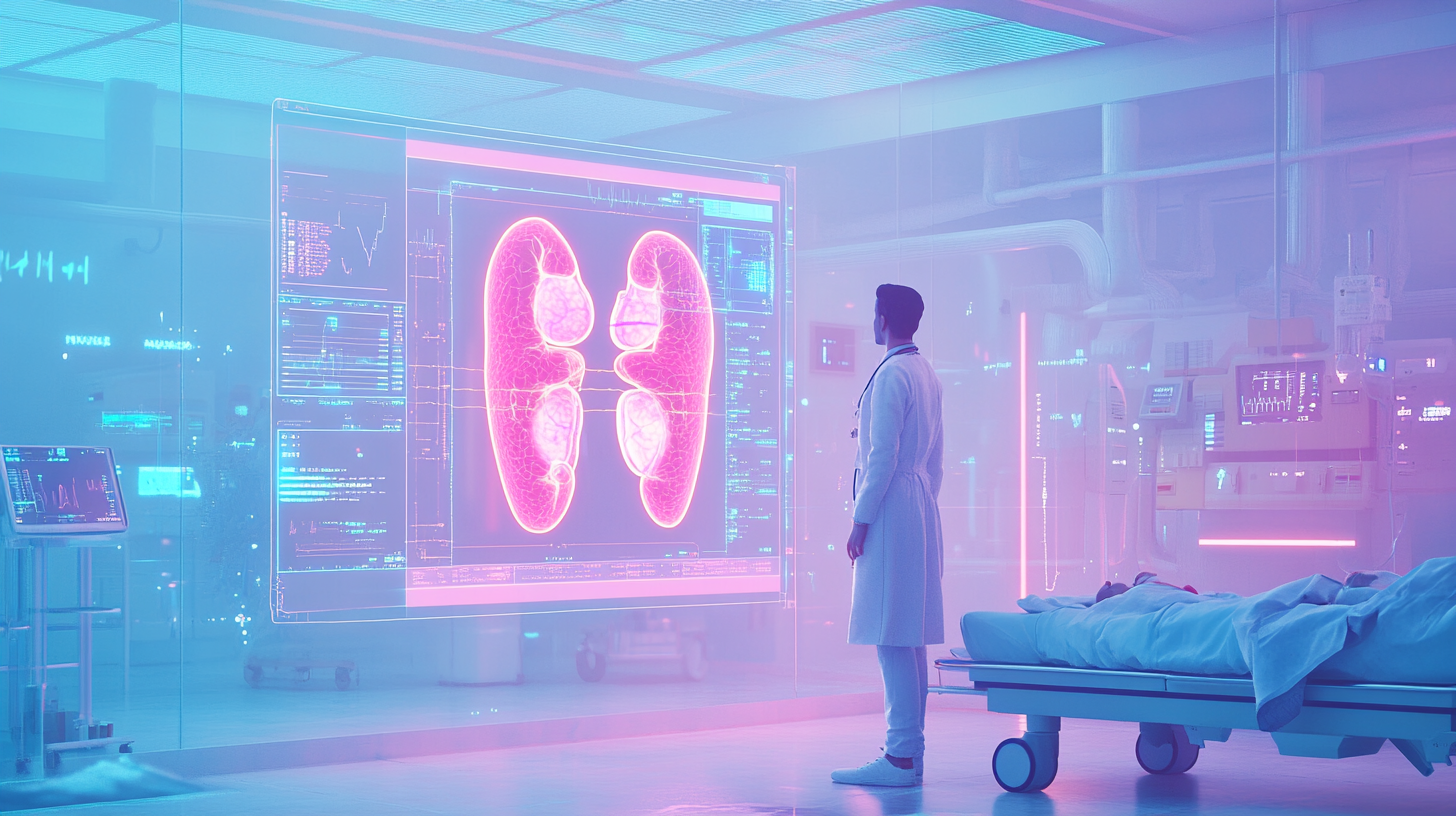
Revolution in diagnostics: when speed and accuracy change the game
Have you ever noticed that even the most experienced doctors have doubts? Artificial intelligence eliminates this “human factor.” It analyzes data, double- and triple-checks it, and only then provides results. For patients, this means one thing: fewer mistakes, more accurate diagnoses on the first try. But we mustn’t forget ethical considerations… Many are concerned about this aspect.
How AI changes the approach to diagnosis
- Detailed DNA analysis: helps identify hereditary disease risks.
- Test interpretation: algorithms detect anomalies faster than humans.
- Medical imaging analysis: from tumors to microscopic damage.
- Prediction: the system identifies risks even before symptoms appear.
How does it work
Imagine you’re a doctor. A patient comes in with symptoms that could indicate multiple conditions. AI analyzes their medical history, test results, and similar cases worldwide. Within seconds, the system suggests several possible diagnoses with their likelihood.
Key benefits of AI in diagnosis:
- Reduced time for diagnosis.
- Lower stress levels for patients due to quick decisions.
- More focus on treatment rather than searching for answers.
- Automation of routine tasks in large hospitals.
A real-life example
A few years ago, in a German clinic, AI saved a patient from a misdiagnosis. An MRI scan showed an anomaly that doctors mistook for a tumor. However, the algorithm analyzed the image and similar cases, identifying it as a simple cyst. The patient avoided unnecessary surgery, and the doctors learned a valuable lesson: trust the technology.
Mini-joke: AI won’t replace doctors but will become their right hand. A surgeon once said, “If I’d had AI 10 years ago, I’d already be retired — everything gets done so much faster!”
If your clinic or business isn’t using AI yet, it’s time to start. Every day, this tool becomes more accessible and powerful. Those who implement it today will lead the market tomorrow. Ready to take the leap? Start now.
Medical gadgets and apps: when your smartphone becomes your doctor
The smartphone in your pocket is no longer just a device for calls or social media. It can become a real doctor, monitoring your health 24/7. Monitoring apps, smartwatches, blood pressure gadgets — all of this is no longer a luxury but the standard of our time.
How do AI gadgets and apps work?
- Health monitoring: gadgets track your heart rate, sleep, activity level, and even blood oxygen levels.
- Real-time data analysis: the app collects information and provides recommendations.
- Risk alerts: for example, a signal about an increased risk of a heart attack based on your heart rate.
- Integration with doctors: your metrics are instantly sent to specialists for evaluation.
Which gadgets are already changing lives
For example, smartwatches not only count steps but also warn about arrhythmia or high stress levels. Other devices include:
- Home blood pressure monitors and glucometers: integration with apps makes analyses simple and convenient.
- Medical apps: from symptom analysis to medication reminders.
- Smart lenses: measure blood sugar levels through tears.
Real-life case
A patient in the US discovered a serious health issue thanks to her smartwatch. The device detected an irregular pulse, prompting her to visit a doctor. The diagnosis: arrhythmia. Early detection helped prevent serious complications.
Why is this valuable for businesses?
- Attracts younger audiences who love gadgets.
- Enhances brand trust through cutting-edge technology.
- Opens opportunities for partnerships with device manufacturers.
- Promotes clinic services via innovative tools.
Expert opinion: “Your smartphone is more than just a gadget. Imagine having your doctor in your pocket. While it won’t replace a specialist, apps are already helping hundreds of thousands of people manage their health daily.”
Is your business leveraging the potential of medical gadgets? If not, it’s time to start. Integrating these solutions not only simplifies life but also shows clients that you’re ahead of the competition.
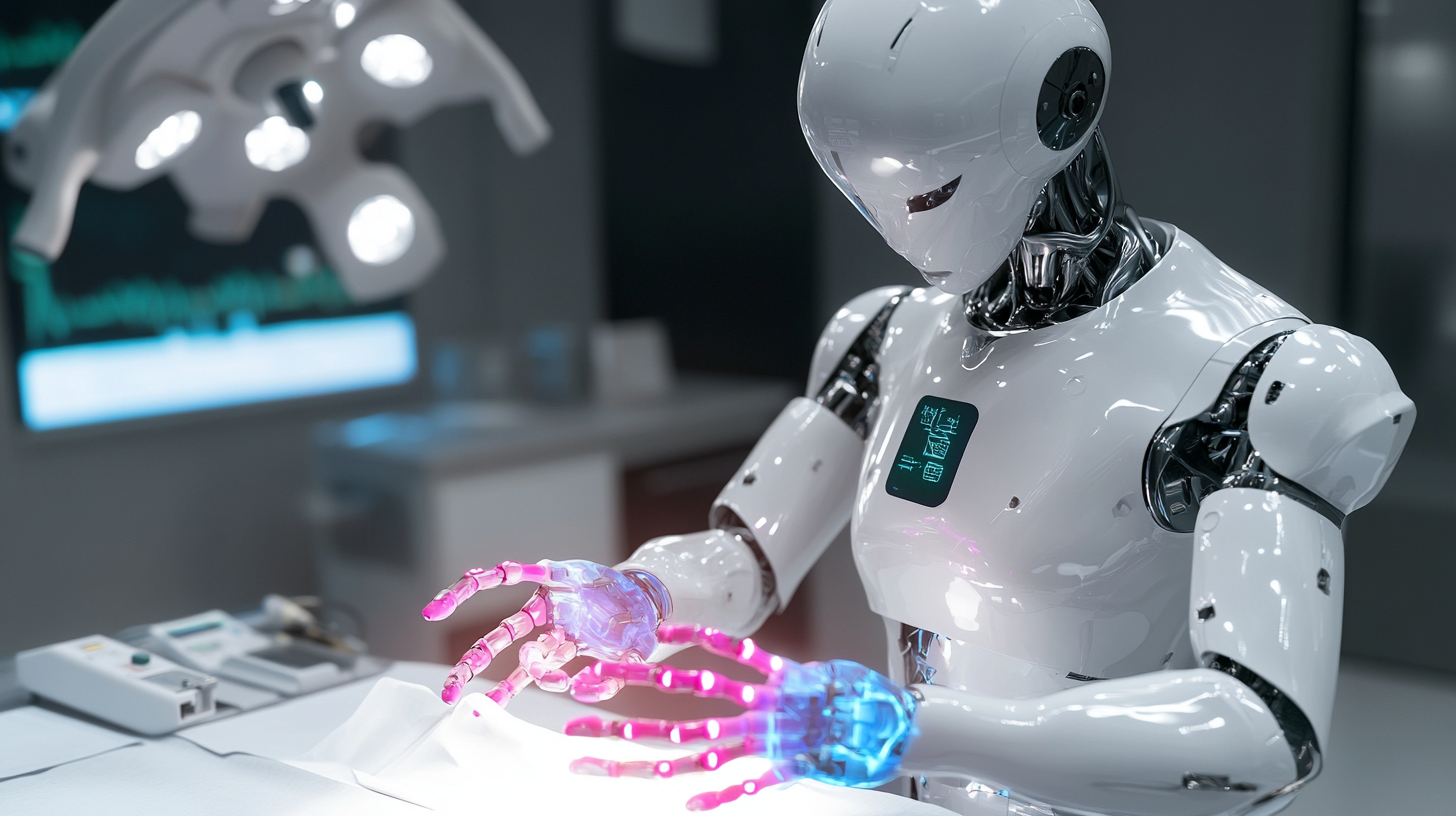
AI in tackling global challenges: how to predict and prevent problems
Imagine artificial intelligence as a seer, foreseeing diseases before they become a problem. It doesn’t just predict outbreaks but also helps respond quickly, allocate resources, and save lives. In a world where every day counts, AI is already becoming the invisible hero.
How does AI address global challenges?
- Early warning: systems analyze data from news, social media, and medical databases to detect early signs of threats.
- Spread prediction: algorithms model how diseases move across regions, enabling early preparation.
- Resource optimization: technologies identify where to send medicines, medical equipment, or personnel.
- Contact tracing: apps help monitor and limit chains of infection.
Impressive cases
During the COVID-19 pandemic, Canadian startup BlueDot alerted governments about the threat 9 days before WHO. The algorithm analyzed flight patterns, regional reports, and even social media posts. This information allowed several countries to begin preparations earlier and save thousands of lives.
Another example is India. AI models helped predict dengue fever outbreaks by considering weather, migration, and insect populations in regions. This enabled local authorities to organize disinfection campaigns, reducing the disease rate by 35%.
Why does it matter?
- Time efficiency: early warnings enable swift action.
- Rational approach: optimizes medical expenditure.
- Population protection: rapid response minimizes losses.
- Reputation boost: governments, clinics, and businesses using AI build trust among the population.
Expert opinion: “AI is our ally in a battle where every minute counts. It won’t replace doctors or rescuers but will be the tool that helps them act more effectively,” says Anna, an infectious disease specialist with 15 years of experience.
Modern healthcare businesses must integrate AI into their workflows. This will not only help mitigate risks but also elevate your services to the next level. Remember: in a world where the fastest wins, technology is your greatest ally.

Conclusion: AI in medicine — the future is already here
Medicine is evolving before our eyes, and artificial intelligence plays a pivotal role in this transformation. From personalized treatment to tackling global challenges, AI is already a tool that enhances patient care and propels businesses to new heights.
What did we learn?
- AI personalizes care by considering each patient’s unique characteristics.
- Technologies enable faster and more accurate disease diagnosis.
- Medical gadgets become daily health assistants.
- AI analyzes global threats, predicting and preventing epidemics.
Why is this important for business?
- Attracting clients who value modern solutions.
- Enhancing the efficiency of workflows.
- Building a reputation as an innovative company.
- Gaining a competitive edge in the market.
Final word:
“AI is not a replacement for doctors but their greatest ally. With these technologies, we can focus on what truly matters — caring for people,” says experienced surgeon James McGraw.
Ready to act? It’s time to elevate your business or healthcare facility to the next level. Implement AI today to become a leader in your industry tomorrow. Innovation is the path to trust, efficiency, and safety. Start the transformation now!

